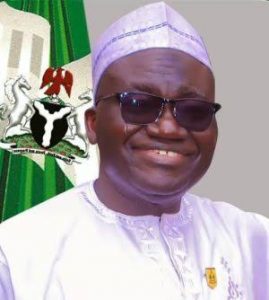Strengthening Labour Institutions Key to Tinubu’s Job Creation Agenda — MINILS Boss

The Director General of the Michael Imoudu National Institute for Labour Studies (MINILS), Comrade Issa Aremu, has urged the Federal Government to strengthen labour market institutions as a crucial pillar for the successful implementation of President Bola Tinubu’s Renewed Hope Agenda.
Comrade Aremu made this call on Saturday in Ilorin while marking his fourth year in office as the substantive head of the institute. He stated that for Tinubu’s administration to achieve its goals of decent employment, enhanced productivity, industrial peace, and poverty reduction, the capacity of labour institutions must be fully developed and empowered.
He applauded the Tinubu-led government for recognising the role of labour in national development through the recent review of the national minimum wage and the clearing of pension arrears.
According to him, these steps reflect a commitment to making labour the backbone of economic growth.
“President Tinubu has shown commendable leadership by appreciating labour as a source of wealth.
“The Renewed Hope Agenda can only succeed when labour institutions are equipped to meet today’s challenges,” Aremu said.
Reflecting on the history of MINILS, which was established under the 1975 Labour Policy and formally inaugurated in 1983, Aremu said it has educated hundreds of thousands of workers nationwide.
He noted that the institute’s mandate remains central to promoting social dialogue, industrial harmony, and labour education.
Since assuming office in 2021, Aremu has led several reforms aimed at repositioning MINILS.
He cited the introduction of the institute’s first-ever Strategic Plan (2022–2026) as a major milestone, aligning its activities with the national development agenda.
“For the first time in our history, we now have a strategic direction. This plan is guiding our growth in line with the expectations of our stakeholders and the Renewed Hope Agenda,” he added.
Under his leadership, MINILS has expanded its training focus beyond traditional labour education to include youth and women empowerment, digital literacy, and job creation through vocational skills.
These efforts, he said, are in sync with the Federal Government’s Labour, Employment, and Empowerment Programme (LEEP) and the broader push for inclusive economic participation.
He revealed that over 3,000 participants have benefitted from on-site and online training at the institute in 2024 alone—far surpassing the target of 1,250 set in the Ministerial Performance Agreement.
MINILS has also trained 720 youths from all geopolitical zones in cinematography, carpentry, and tie & dye, with the Entrepreneurship Development Centre completed and equipped in 2022.
Under the Federal Government’s SKILL-UP-ARTISANS programme, another 220 Nigerians were trained in tailoring, woodwork, and design.
“We have moved beyond just educating workers on grievances and bargaining. We now drive empowerment through skills and entrepreneurship to tackle poverty directly,” he said.
Aremu further highlighted the institute’s commitment to inclusion, noting the participation of women, people living with disabilities, and members from all states in MINILS’ training programmes.
He called on other government agencies to follow MINILS’ lead in prioritising local content and Nigerian interests, particularly in procurement and service delivery.
“Nigerians must be at the heart of all our policies and programmes. That is the true essence of the Renewed Hope Agenda,” he concluded.
=============